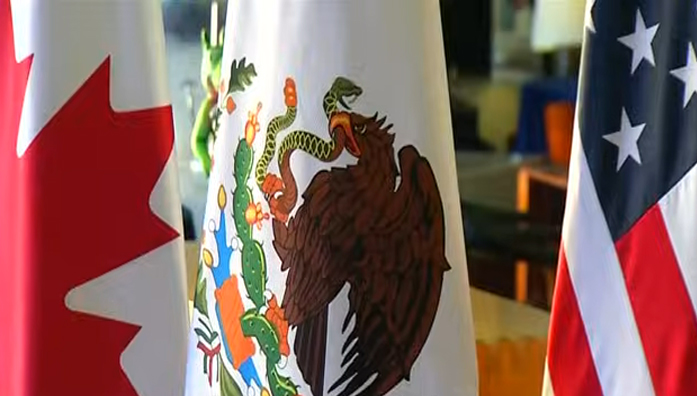
The fact is that negotiations have been agreed for February, during which both Mexico and Canada will undoubtedly present their demands in order to harmonize them with the proposals of the White House.
by Guillermo Alvarado
The first episode of the tariff war launched by the President of the United States, Donald Trump, against his neighbors Canada and Mexico, against whom he threatened to impose an extraordinary 25% tariff on their exports, ended in a draw, so to speak.
The day before, the real estate magnate spoke with his North American counterparts and had to retreat after receiving violent reactions from those who are also his partners in a free trade agreement.
In fact, the intentions of the enraged President Trump were to blow up this agreement, which entered into force on January 1, 1994, and whose renewal he himself negotiated during his first term in office in order to secure the main benefits.
It may be that someone sufficiently reasonable could have blown in his ear that getting rid of the treaty is very bad business and that the reaction of his partners to apply additional tariffs to goods produced in the United States would have a negative impact on the economy of that power, the case is that he put a delay of one month to customs charges.
The fact is that negotiations have been agreed for February, during which both Mexico and Canada will undoubtedly present their demands in order to harmonize them with the proposals of the White House.
One of Trump's excuses for trying to punish his neighbors is drug trafficking across both borders, a problem that really needs to be solved because of its high human cost and the challenges it poses for regional security.
What Washington needs to understand is that neither Canada nor Mexico, nor even the drug-producing countries, are really responsible for this phenomenon, the cause of which lies in the enormous consumer market, the largest in the world, located in the United States.
The president who likes to present himself as an experienced economist, should know that it is demand that creates supply, and not the other way around. Remove consumption from American society and drug production and trafficking will disappear.
All previous administrations have insisted on framing the issue in police or military terms, which is a huge mistake, because it is a public health issue, prevention and treatment of addicts, which is almost never discussed. Another issue is the economic question and the management of the finances generated by this obscure business, which deserves separate attention.

